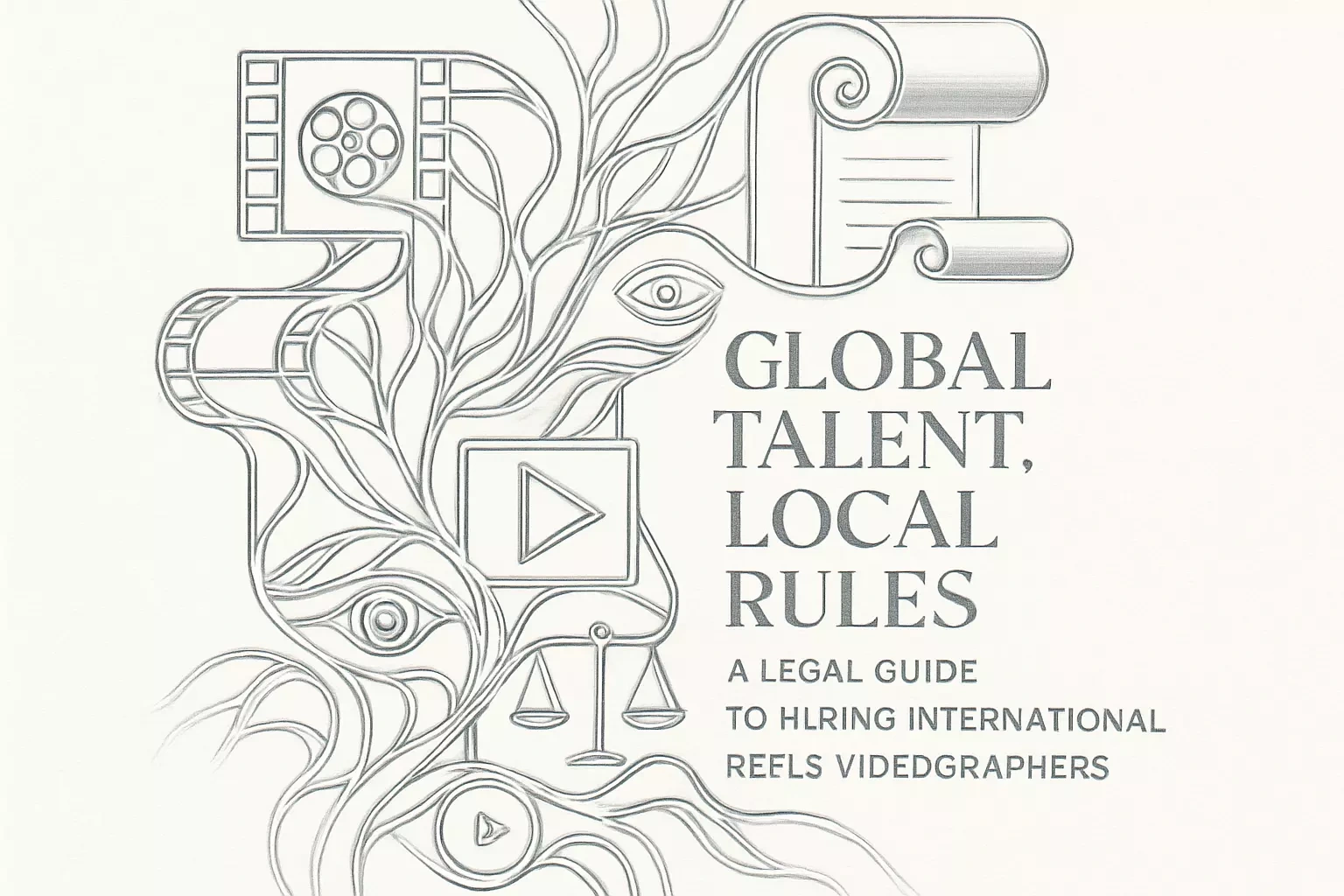Global Talent, Local Rules: A Legal Guide to Hiring International Reels Videographers

Global Talent, Local Rules: A Legal Guide to Hiring International Reels Videographers
The Contract: Your Global Handshake
Governing Law and Jurisdiction
Clarity is Key
International Payments & Taxes
The W-8BEN Form is a Must
Payment Methods and Currency
Understanding Tax Withholding
Navigating International IP Laws
Reinforce IP Ownership in Your Contract
Be Aware of 'Moral Rights'
A Checklist for Hiring International Creators
Use a Comprehensive Contract
Collect a W-8BEN Form Before Payment
Establish Clear Communication Channels
Consult with Professionals
Conclusion
References
Global Talent, Local Rules: A Legal Guide to Hiring International Reels Videographers
The Contract: Your Global Handshake
Governing Law and Jurisdiction
Clarity is Key
International Payments & Taxes
The W-8BEN Form is a Must
Payment Methods and Currency
Understanding Tax Withholding
Navigating International IP Laws
Reinforce IP Ownership in Your Contract
Be Aware of 'Moral Rights'
A Checklist for Hiring International Creators
Use a Comprehensive Contract
Collect a W-8BEN Form Before Payment
Establish Clear Communication Channels
Consult with Professionals
Conclusion
References
Posted Jun 30, 2025
Found the perfect Reels creator overseas? Here's what you need to know about contracts, payments, taxes, and intellectual property when working with international freelance talent.










